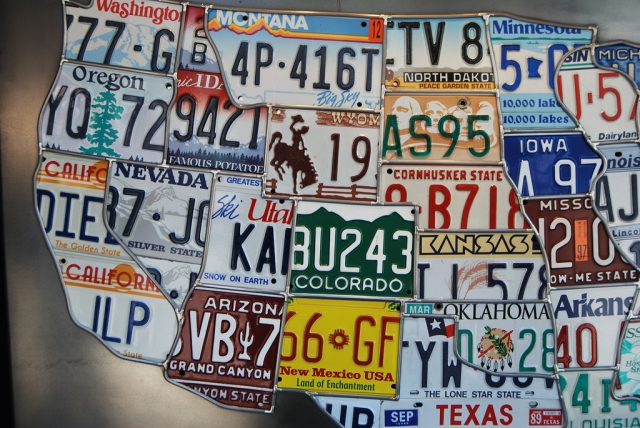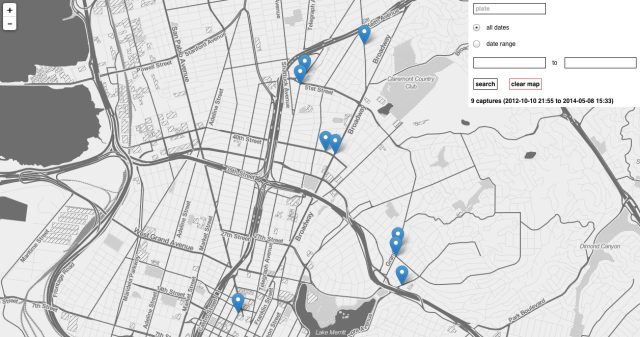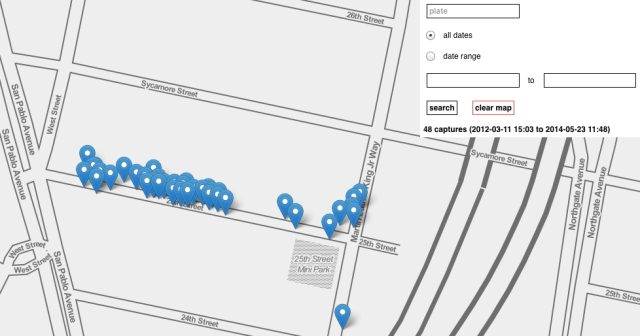
Now Ars knows too.
In response to a public records request, we obtained the entire LPR dataset of the Oakland Police Department (OPD), including more than 4.6 million reads of over 1.1 million unique plates between December 23, 2010 and May 31, 2014. The dataset is likely one of the largest ever publicly released in the United States—perhaps in the world.
After analyzing this data with a custom-built visualization tool, Ars can definitively demonstrate the data's revelatory potential. Anyone in possession of enough data can often—but not always—make educated guesses about a target’s home or workplace, particularly when someone’s movements are consistent (as with a regular commute).

For instance, during a meeting with an Oakland city council member, Ars was able to accurately guess the block where the council member lives after less than a minute of research using his license plate data. Similarly, while "working" at an Oakland bar mere blocks from Oakland police headquarters, we ran a plate from a car parked in the bar's driveway through our tool. The plate had been read 48 times over two years in two small clusters: one near the bar and a much larger cluster 24 blocks north in a residential area—likely the driver's home.
“Where someone goes can reveal a great deal about how he chooses to live his life," Catherine Crump, a law professor at the University of California, Berkeley, told Ars. "Do they park regularly outside the Lighthouse Mosque during times of worship? They’re probably Muslim. Can a car be found outside Beer Revolution a great number of times? May be a craft beer enthusiast—although possibly with a drinking problem."
In August 2014, the American Civil Liberties Union and the Electronic Frontier Foundation lost a lawsuit to compel the Los Angeles Police Department and the Los Angeles Sheriff’s Department to hand over a mere week’s worth of all LPR data. That case is now on appeal.
In Oakland, OPD's current LPR dataset shows only a few data points for most vehicles. But there are exceptions—such as the car seen 459 times over two years on a certain block of Chabot Road, east of the Rockridge BART station (one of the city’s richer areas). As Oakland and cities like it deploy more LPR cameras, such datasets could quickly grow more complete.
“Project forward to a world where LPR technology is cheap and they can be mounted on every police car and posted at every traffic light," said Crump. "Do you think that anyone with a badge should be able to search through that data at their discretion? If not, then you should support restrictions on how long law enforcement agents can store this data, and who can access it, and under what circumstances.”

reader comments
188